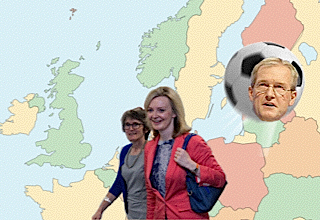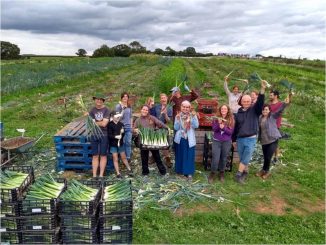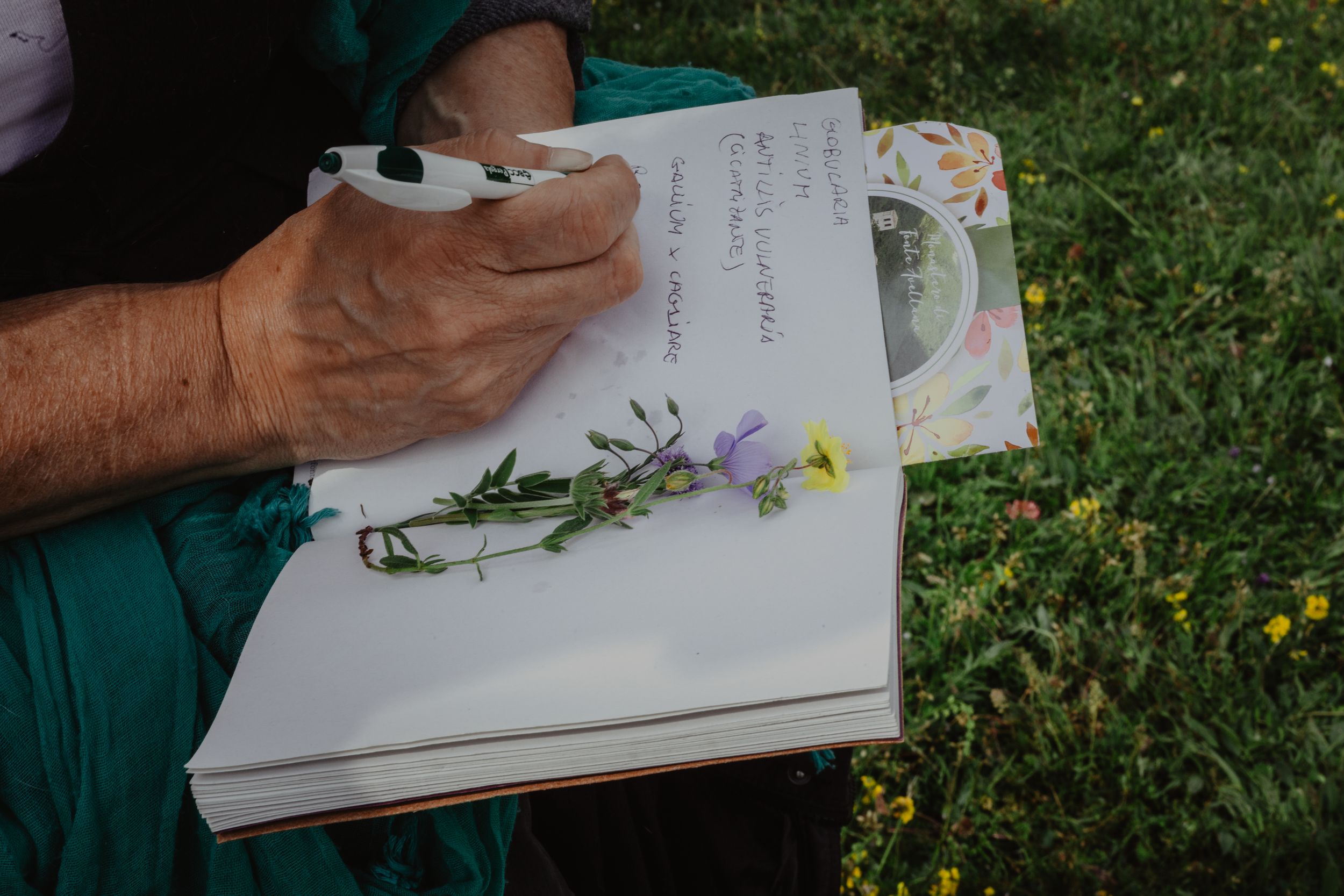
Health is a human right, not a privilege, which is why Herbalists Without Borders work to deliver health justice to displaced and disadvantaged people via the powerful medium of herbs. Through valuing indigenous healing wisdom, producing medicine from plants gives vulnerable people a renewed sense of control over their environment and personal health. Herbalism also fosters a renewed connection to the landscape from which everyone can benefit. Ursula Billington has more.
In these dark winter months thoughts commonly turn to health and wellbeing. Minds settle on vulnerabilities and many wonder how best to support those on society’s margins. As is so often the case, one answer lies in the soil. It turns out that, on a local level, real impact can be made through plant lore and growing.
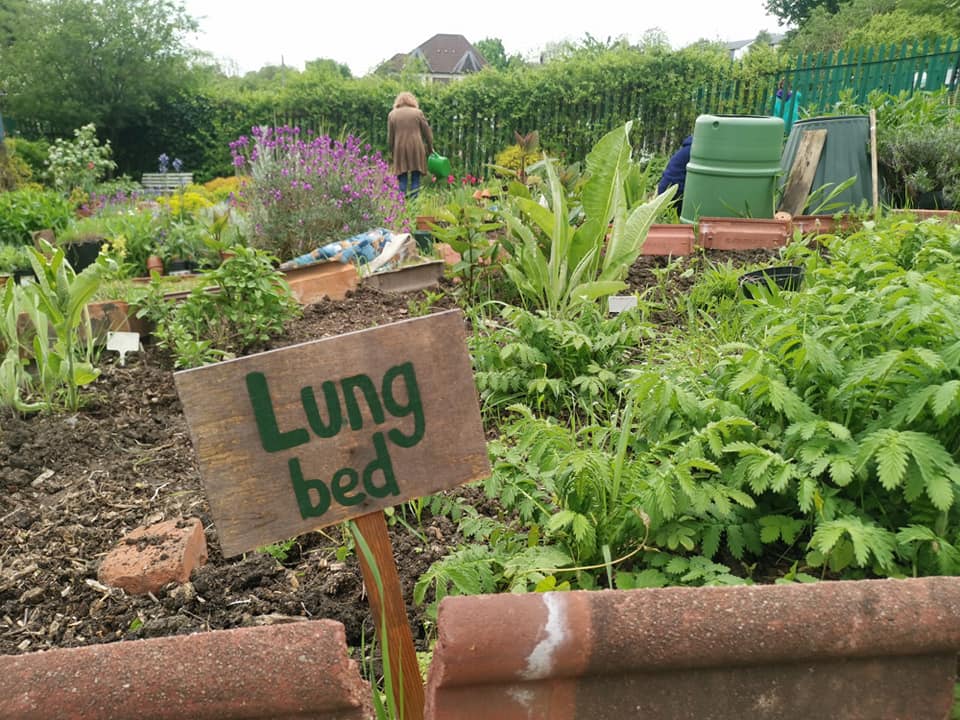
Health justice
Herbalists Without Borders (HWB) delivers health justice via the powerful medium of herbs to refugees and people impacted by natural disasters, poverty and other traumas.
Not only do many deprived and displaced people lack access to medicines; they’re also typically limited in choice around the type of healthcare available to them. 80% of the world still use plants as primary medicine, an option removed when displaced due to lack of availability and local knowledge. Viewing health as a human right rather than a privilege, HWB provides free holistic healthcare services ranging from herbal remedy provision to holistic clinics, herb education workshops and access to community gardens.
A significant focus is on the growing and preparation of natural botanical remedies. In supporting resident refugees and asylum seekers to create plant-based medicines from scratch, the HWB local branches provide vulnerable people with a renewed sense of control over their immediate environment and personal health.
The solution is local, sustainable and nature-based: “Down to the ground green medicine for the people,” as HWB put it.
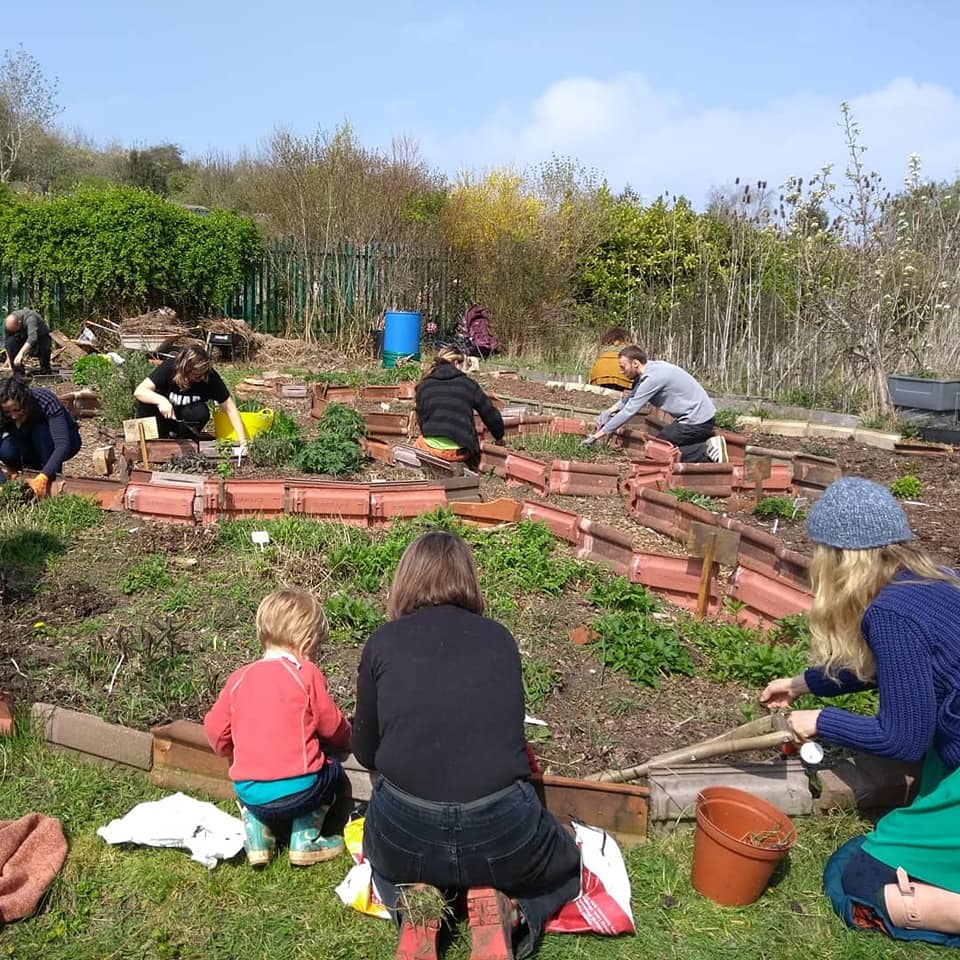
Traditional healing wisdom
The organisation honours and respects indigenous plant lore, knowledge and skills, working actively to protect and preserve indigenous healers and the plants they rely on, “regenerating valuable traditional healing wisdom and practices that have been negated, oppressed, misused or extinguished.”
One HWB branch in Bristol, UK, recognises the benefits of connecting with indigenous natural medicine. As well as operating a mobile dispensary that takes remedies for common ailments such as insomnia, anxiety, coughs and low immunity to existing support projects in the city, the team run workshops for trafficked women, asylum seekers and pregnant refugees.
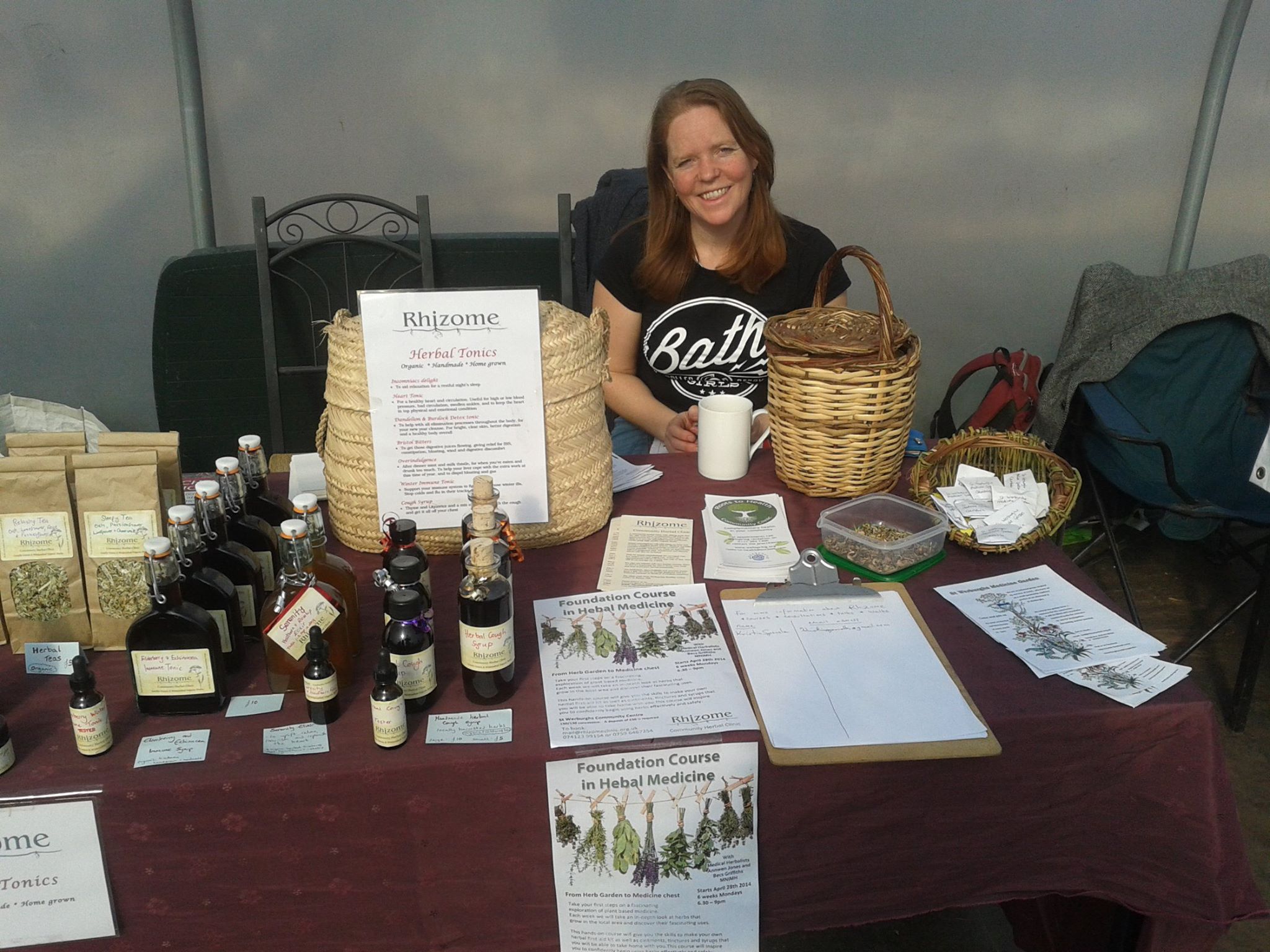
Medicine garden
Teaching local herb knowledge opens up conversations about the plants people use in their countries of origin: “There has been a sharing of knowledge,” says founding member Becs Griffiths. People are glad to see herbs and medicines they recognise. Workshops provide social connection, a chance to reflect on indigenous practices and an opportunity to connect with local landscape in a meaningful way.
Becs, a qualified Medical Herbalist is keen to bring refugees to the community growing project Bristol Medicine Garden to teach herbalism from the ground up and provide a tangible connection to the local natural environment.
The garden is an educational space, with areas of herbs relating to different body systems and specific remedies, such as cough syrups.

Don’t feed the soil
The garden is organic but, Becs says, it’s vitally important with herbs not to fertilise or enrich the soil too much: “Herbs are medicinal because they produce secondary metabolites to survive,” she explains; “If they’re given lots of lovely manure and nourishment they don’t need to fight to survive so don’t produce these metabolites. We try to break up the soil structure with leaf mulch to make it less rich, and don’t feed the soil.”
Alongside the garden, herbs are harvested on local foraging walks, where swathes of medicinal herbs are growing wild and free in parks, on cycle paths and verges.
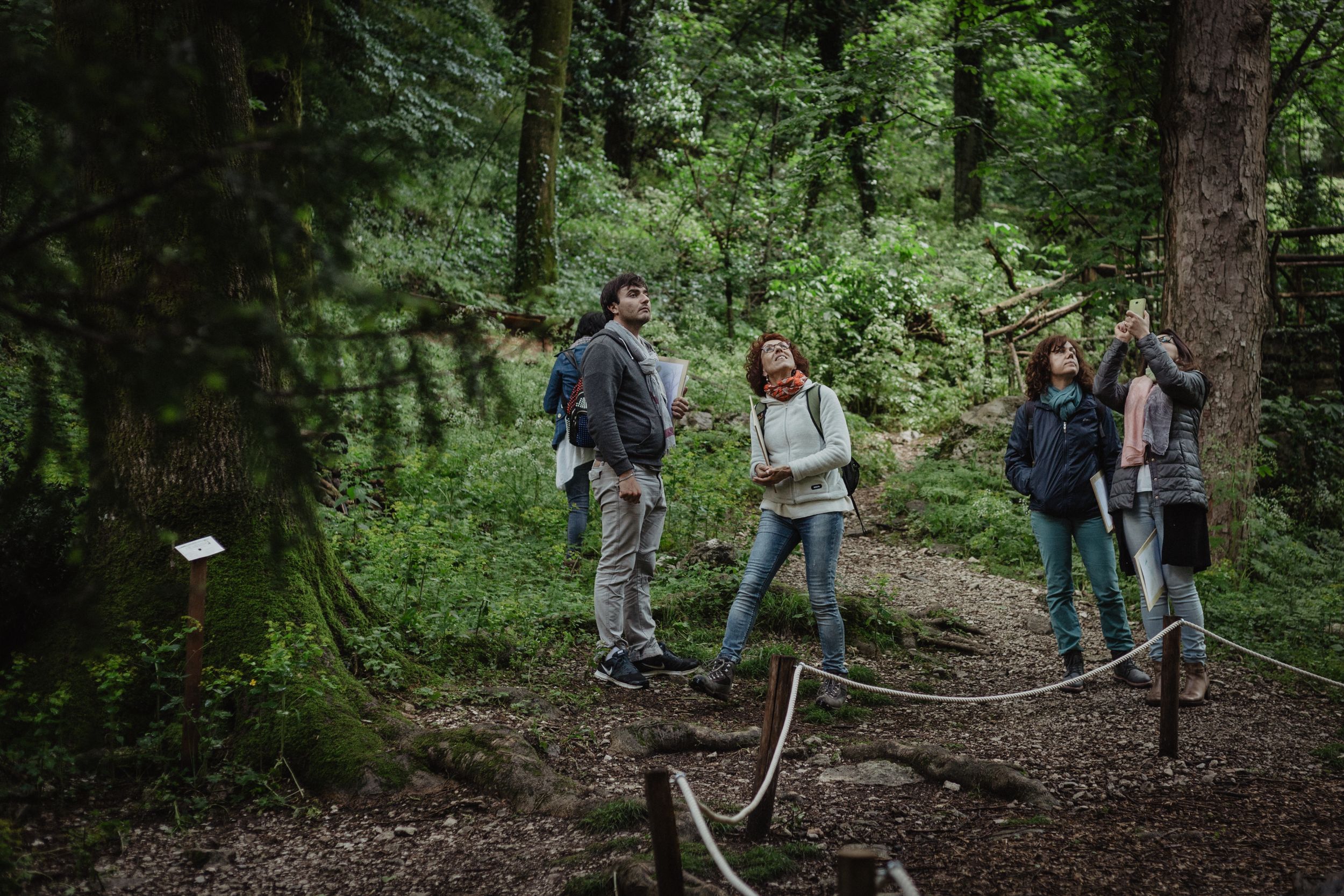
Foraging
Foraging is an essential approach according to another Herbalists Without Borders educator, Karin Mecozzi. Based in rural Marche, Italy, she values the natural abundance and potency of the native wild plants: “They’re very strong because they’re in the wild landscape which is full of forces – the sun, the earth, all the forces of the landscape itself.”
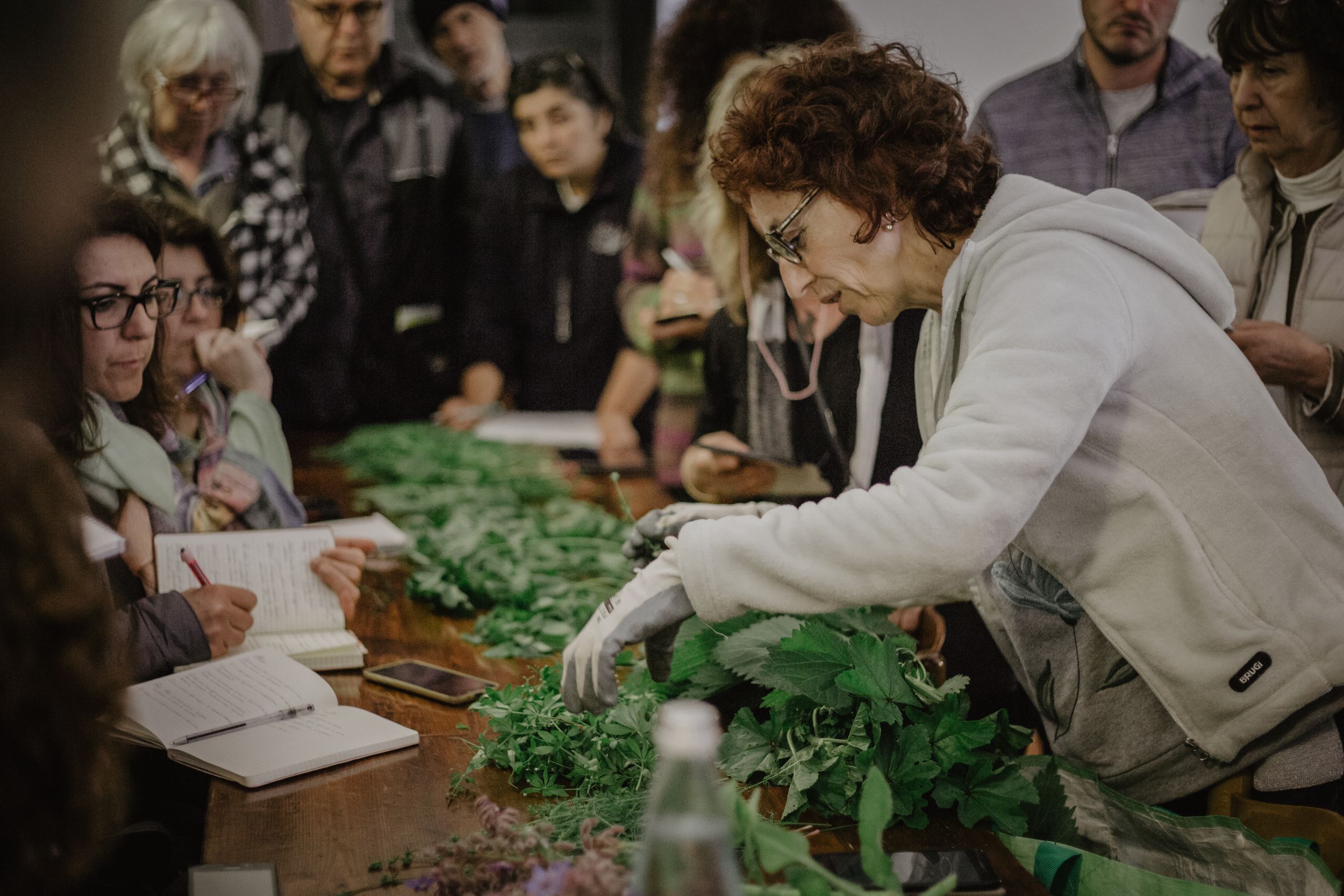
Biodynamics
When growing herbs, Karin attempts to replicate the wild conditions as far as possible by practising biodynamics: “With this method you can imitate the wild situation. You can give the plant all the best – of the soil, and the chemical side; but also a subtle, very fine part.”
The philosophy mirrors her holistic view of the landscape at large which she sees as more than the sum of its parts: “On one hand it’s important to consider the ecological, the scientific, the natural knowledge – of course, you have to know the ground, the soil, the plants and so on. But on the other hand, it’s more holistic and creative. Landscape isn’t just nature. People change it without thinking or looking, even just by picking up a plant. It’s important that everyone recognises their personal contribution to the landscape.”
Karin was inspired at a young age by a grandmother who walked the land picking wild plants and turned them into herbal remedies and brews. At 16 she visited a biodynamic farm and fell in love with both the growing and the philosophy: “I knew farming was wonderful, and I found the biodynamic method very fascinating – doing the preparations, walking the fields, watching the stars and moon. It was so natural for me.”
There followed a lifelong study of plant lore including herb use.
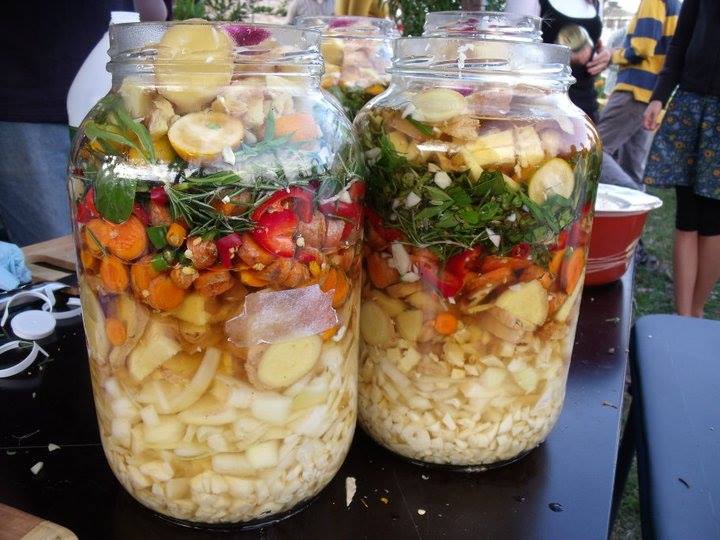
Better understanding
Treating people is frustratingly difficult due to Italian laws against herbal medicine; instead she focuses on education: writing books, running workshops and local foraging walks. She remains inspired by HWB and the work they do around the world. “I love how they handle extreme situations,” she says; “It’s really amazing what they do in the USA, Australia, Africa – it’s so good as a herbalist to know that everywhere in the world there are people working with plants.”
Karin believes that everyone, whether comfortable or vulnerable, can benefit from a better understanding of their local plants and environment. She is connected with Petrarca, the European Academy for the Culture of Landscape, working holistically to improve farms and land use across Europe. The process involves considering the whole – the ‘organism’ of the farm: the separate systems combined that create, again, something greater than the sum of its parts. Members provide their unique perspectives on a landscape: Karin considers the land from a herbalist point of view, where others might consider its history, ecology, cultural heritage or other factors.
“We try to find out what ‘the whole’ is of this place,” she explains; “Everyone works as an individual to provide opinions or impressions. After a few days we come together and very slowly there grows an imagining of the wholeness which is the same for everyone, even as the differences remain.” These converging impressions are used to form plans for the healthy future of the land. It’s a hugely successful approach, she says.
Working in different landscapes and countries also fulfils a desire to solidify pan-European connections. “It’s important that countries in Europe talk together,” she says; “We don’t know what happens in other countries. It’s psychologically important too, for solidarity.”
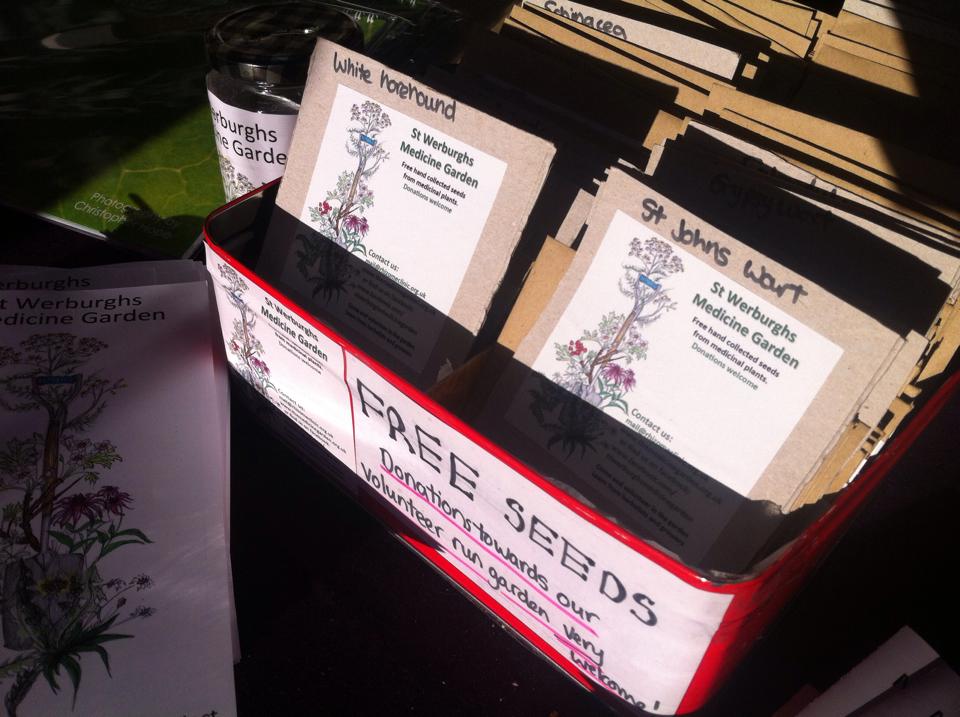
Connecting the dots
Karin connects the dots to make a strong case for a more meaningful connection to environment and place. “From herbalism to farming, it’s very important for our inner relation to landscape and health, and really to save the Earth,” she says.
“Choosing to buy things in a local market – from basil to a potato, to really sustainable agriculture – is very important for our communities. It’s not only a thing of health. It’s socially very important and it’s wonderful as you get to know people of different generations. I think it’s transformational.”
More on Italy
Coping with Covid – Struggles and Resilience of Small-Scale Cheesemakers in Italy
More on the UK
Oxford Real Farming Conference 2022 | New Dawn For Solidarity
Bristol Bites Back | Fruits & Roots of Radical Resilience in South-West England
The True Cost of Britain’s Addiction to Factory-Farmed Chicken
‘Too good to be true’ – The UK Co-op Helping New Entrants Get Access to Land



